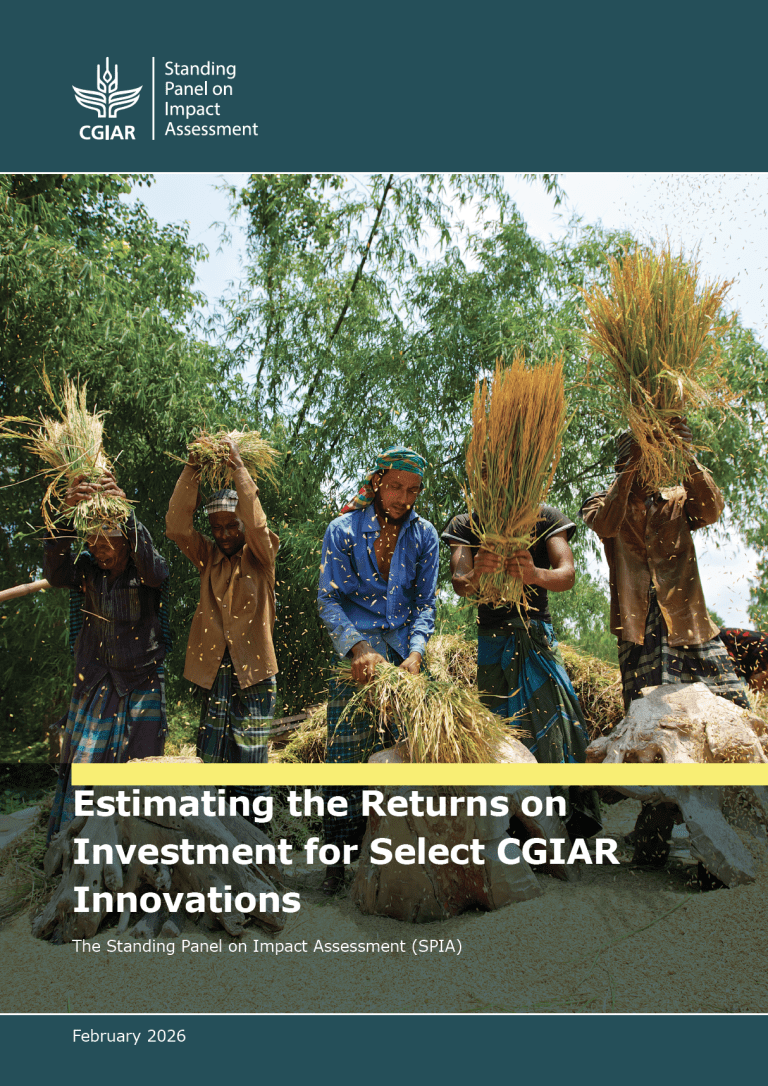 Over the years, SPIA has made major contributions in documenting the adoption of CGIAR innovations at the national level, and in developing methods to measure adoption. More recently, SPIA has been engaging with research—that goes beyond adoption—to providing rigorous evidence of the impact of CGIAR innovations on various welfare metrics, all at scale. This technical note describes some of these SPIA-supported studies. They encompass both accountability-oriented studies that are largely retrospective in nature, and those that leverage or integrate monitoring and evaluation data to quantify impact at scale. The studies address a range of innovations—from varieties, conservation agriculture, to methods for supporting collective action—and outcomes (national income, income, infant mortality, land degradation, air pollution). The focus is on methods, and in particular, how identification challenges have been dealt with, rather than results which in many cases are not yet available.
Over the years, SPIA has made major contributions in documenting the adoption of CGIAR innovations at the national level, and in developing methods to measure adoption. More recently, SPIA has been engaging with research—that goes beyond adoption—to providing rigorous evidence of the impact of CGIAR innovations on various welfare metrics, all at scale. This technical note describes some of these SPIA-supported studies. They encompass both accountability-oriented studies that are largely retrospective in nature, and those that leverage or integrate monitoring and evaluation data to quantify impact at scale. The studies address a range of innovations—from varieties, conservation agriculture, to methods for supporting collective action—and outcomes (national income, income, infant mortality, land degradation, air pollution). The focus is on methods, and in particular, how identification challenges have been dealt with, rather than results which in many cases are not yet available.
The technical note also highlights how non-traditional but large-scale data sets, including satellite imagery, have been used to understand welfare effects of CGIAR innovations. A key lesson from experiences described in this technical note is the importance of careful compilation of data on the early roll out of innovations, in collaboration with (rather than prior to engaging with) impact assessment specialists. The hope is that these concrete examples of how methodological, identification, and data challenges have been successfully met will serve as a guide for impact assessment specialists working with CGIAR and other interventions. We also hope that it will be useful for people who work with impact assessment specialists, from M&E staff to researchers and research managers, in appreciating the issues and challenges of assessing impact at scale.



